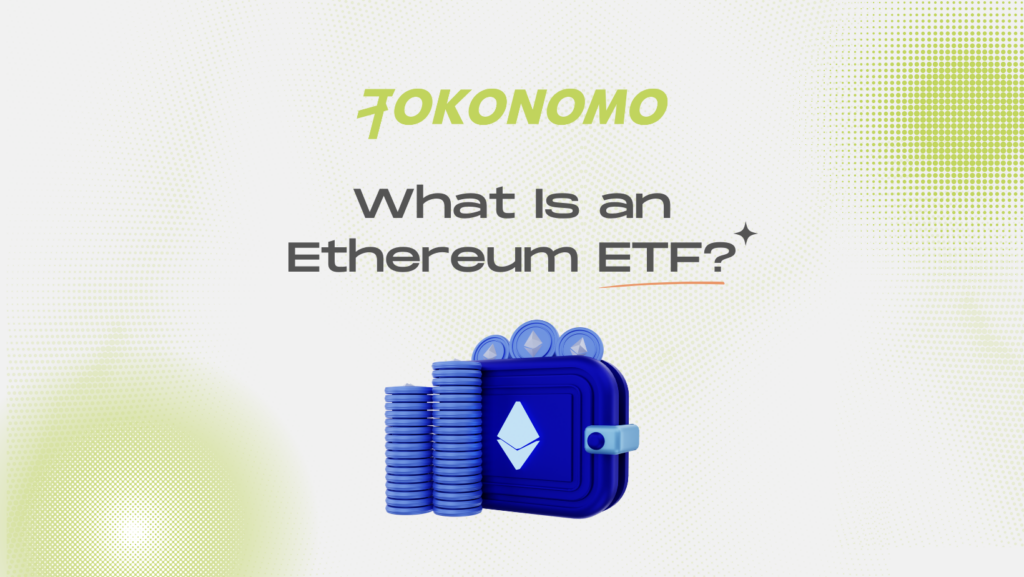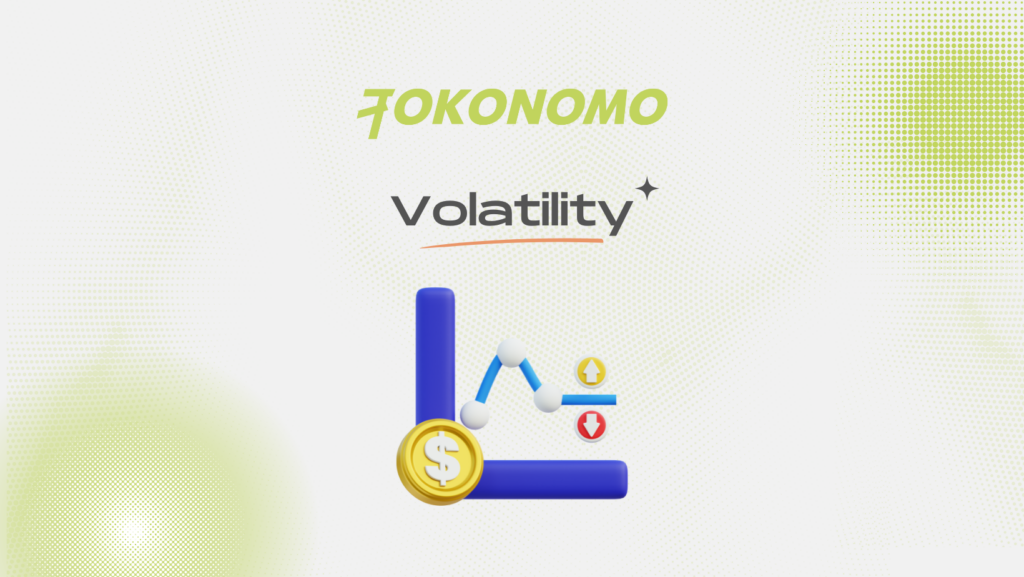In recent years, investing in cryptocurrencies has gained significant popularity, attracting a growing number of investors. Despite this surge in interest, many individuals still find the process of buying, managing, and securely storing cryptocurrencies to be challenging and confusing.
An Ethereum ETF (Exchange-Traded Fund) provides a more accessible and simplified avenue for investors to gain exposure to Ether (ETH) without the complexities associated with directly purchasing and safeguarding the digital asset. In this article, we will delve into what an Ethereum ETF is, how it functions, the risks involved, and the potential benefits it offers to investors seeking exposure to this emerging asset class.
What Is an ETF?
An exchange-traded fund (ETF) is a type of investment fund that is actively traded on stock exchanges. These funds typically hold a diversified collection of assets, which may include stocks, bonds, commodities, or even cryptocurrencies. ETFs are structured to closely mirror and track the performance of a specific index, sector, or asset class, providing investors with a simplified way to gain exposure to a broad range of financial instruments.
What Is an Ethereum ETF?


An Ethereum Exchange-Traded Fund (ETF) is a financial product designed to follow the price of Ether (ETH), the native cryptocurrency of the Ethereum network. This type of ETF offers investors a convenient way to gain exposure to the price fluctuations of ETH without the complexities associated with managing cryptocurrency wallets or dealing directly with crypto exchanges. By purchasing shares of an Ethereum ETF, investors can engage in ETH trading through a traditional and familiar investment platform, such as a brokerage account, making it accessible even to those who are not well-versed in the technical aspects of cryptocurrencies.
How Does an Ethereum ETF Operate?
An Ethereum Exchange-Traded Fund (ETF) can either hold Ethereum (ETH) directly or invest in futures contracts that are linked to the price of ETH. Let’s explore in more detail how an Ethereum ETF operates:
- Fund creation: Major financial institutions initiate the ETF by acquiring ETH and contributing it to the fund. In some cases, they might invest in Ethereum futures contracts instead of directly holding ETH itself.
- Tracking ETH’s price: The Ethereum ETF is designed to closely mirror the price movements of ether. When the price of ETH rises, the value of the ETF shares should increase proportionally, and when ETH’s price drops, the ETF shares should also decrease in value.
- Trading on exchanges: After its creation, shares of the Ethereum ETF can be listed and traded on prominent stock exchanges, such as the Nasdaq. Investors can buy and sell these ETF shares throughout the regular trading day, in the same manner as they would trade individual stocks.
Ethereum Spot ETF vs. Ethereum Futures ETF
Base asset
A Spot Ethereum ETF is designed to hold actual Ethereum (ETH) tokens. When you choose to invest in a Spot Ethereum ETF, the fund takes action by purchasing and securely holding ETH on your behalf. As a result, the value of the ETF shares is directly correlated with the current market price of Ethereum, reflecting any fluctuations in its value in real-time.
On the other hand, an Ethereum Futures ETF does not involve the direct ownership of ETH. Instead, this type of ETF invests in futures contracts that are tied to the price of Ethereum. These contracts are essentially agreements to buy or sell ether at a predetermined price on a specified future date. In simpler terms, Ethereum Futures ETFs aim to track the price of ETH by speculating on its future market value, rather than holding the cryptocurrency itself.
Price monitoring
Spot Ethereum ETFs are designed to closely track the current market price of ether, which can significantly simplify the process for investors looking to analyze and predict how fluctuations in the price of ether might impact the value of their ETF shares.
In contrast, the value of an Ethereum Futures ETF is intricately linked to the price of ETH futures contracts. These contracts can be influenced by a range of factors beyond just the current spot price of ether, including market expectations and various future price predictions.
Consequently, the performance of an Ethereum Futures ETF may not always mirror the price movements of ETH as closely as a Spot Ethereum ETF would, leading to potential discrepancies in value that investors should be aware of.
Advantages
Availability
For numerous investors, the intricate process of purchasing and securely storing cryptocurrencies can present significant challenges, ultimately discouraging them from participating in the ever-evolving crypto market. However, an Ethereum ETF (Exchange-Traded Fund) provides a streamlined solution, allowing investors to gain exposure to Ethereum without the hassle of navigating the complexities associated with crypto wallets and exchanges. This option simplifies the investment journey and makes it more accessible for those who may be hesitant to dive into the world of digital assets.
Liquidity
Exchange-Traded Funds (ETFs) are actively traded on stock exchanges, offering liquidity that is comparable to that of traditional stocks. This unique feature allows investors to buy and sell shares of the Ethereum ETF effortlessly, without the concerns typically associated with blockchain transactions, such as gas fees or potential delays.
Diversification
Incorporating an Ethereum ETF into an investment portfolio provides a strategic opportunity for investors to mitigate risks through effective diversification. This approach can be particularly attractive to those who recognize the long-term potential of cryptocurrencies but prefer to avoid the pitfalls of concentrating their investments on a single asset, thus ensuring a more balanced and secure investment strategy.
Regulatory protection
Exchange-Traded Funds (ETFs) are governed by a range of regulations that provide enhanced security and transparency for investors. By investing in an Ethereum ETF, individuals can take advantage of the regulatory protections typically associated with traditional financial markets, all while gaining exposure to the dynamic and evolving crypto market. This approach not only safeguards their investments but also allows them to participate in the innovative potential of cryptocurrency.
Risks
Performance deviation
Although the Ethereum ETF tends to closely follow the price movements of ether, there can still be noticeable discrepancies between the performance of the ETF and the actual price of ether, which are referred to as tracking errors. These tracking errors can arise from a variety of factors, including management fees, operational inefficiencies, and fluctuating market conditions that may impact performance.
Volatility
The cryptocurrency market is widely recognized for its pronounced price volatility. This volatility, while presenting opportunities for significant gains, can equally lead to substantial losses for investors. Those investing in an Ethereum ETF are particularly exposed to this inherent volatility, as the value of their ETF shares can experience significant fluctuations in direct response to any changes in the price of Ethereum (ETH).


Is It a Good Idea to Invest in an Ethereum ETF?
Deciding whether to invest in an Ethereum ETF involves considering a range of personal factors that can significantly impact your investment strategy, including your risk tolerance, specific investment goals, and level of understanding of the cryptocurrency market. Ethereum ETFs offer a streamlined and regulated approach to gaining exposure to Ethereum (ETH) without the need to manage the actual cryptocurrency itself, which can be particularly appealing to a variety of investors looking for easier entry points into the crypto space.
By including an Ethereum ETF in your investment portfolio, you can integrate Ethereum much like you would with any traditional stock or mutual fund. This not only provides opportunities for diversification and liquidity but also comes with the added benefit of regulatory oversight, which can offer a layer of security and peace of mind. However, it is crucial to keep in mind that investing in Ethereum ETFs does entail management fees, and these funds may not always perfectly mirror the price movements of ether due to inherent market fluctuations.
Conversely, if you feel confident navigating the technical intricacies of cryptocurrencies and prefer to maintain direct control over your investment, buying ETH directly might be a more suitable option for you. This route grants you full ownership of the asset and allows you to take advantage of the unique benefits associated with holding a decentralized currency. However, it also comes with challenges, particularly regarding the secure management and storage of your digital assets, which require a certain level of technical knowledge and diligence.
In conclusion, the decision to invest in an Ethereum ETF should ultimately hinge on a careful assessment of your financial objectives, the amount of risk you are prepared to accept, and the degree of involvement you wish to have with your investments.
Prospects for Ethereum ETFs
The outlook for Ethereum ETFs appears highly promising as an increasing number of financial institutions start to acknowledge and respond to the surging demand for cryptocurrency investments. With the rising mainstream acceptance of digital assets, a wider variety of Ethereum ETFs will likely become accessible across diverse markets globally.
Moreover, regulatory developments are poised to significantly influence the future trajectory of Ethereum ETFs. As regulators diligently work to refine and enhance their frameworks governing cryptocurrency-based financial products, we can anticipate greater clarity and stability within the markets. This enhanced regulatory environment may foster increased investor confidence and participation, which would, in turn, propel the growth and expansion of Ethereum ETFs even further.
Conclusion
An Ethereum ETF provides a regulated and easily accessible avenue for traditional investors to gain exposure to the price movements of ETH. Among the numerous benefits associated with such an investment vehicle are a streamlined investment process, enhanced liquidity, and comprehensive regulatory oversight. However, as with any investment, there are inherent risks involved, including potential volatility and tracking errors that can affect performance.
Ethereum ETFs serve as a vital link between traditional finance and the burgeoning crypto market, facilitating investment opportunities for a wider range of investors interested in digital assets. This innovation could play a significant role in fostering the future growth and broader adoption of cryptocurrencies, as more individuals and institutions feel comfortable participating in this evolving financial landscape.











